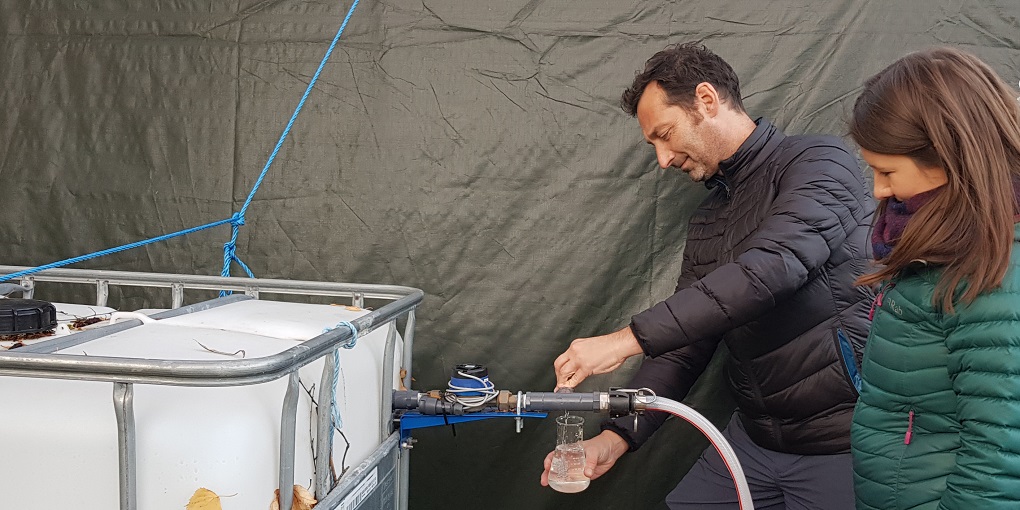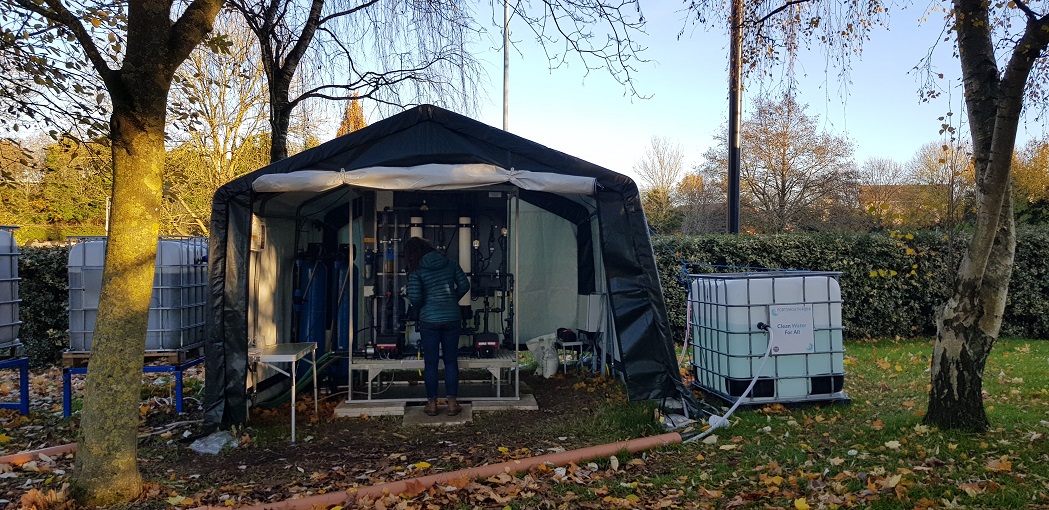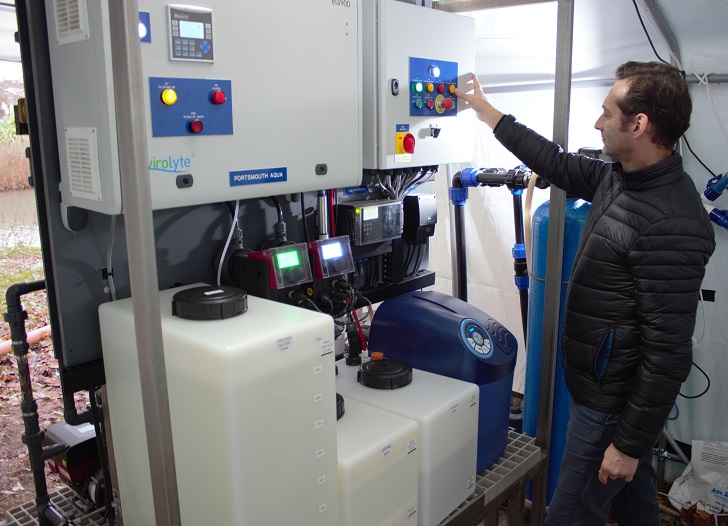


Many people worldwide still lack access to safe, clean drinking water. Scientists at the University of the West of England (UWE) have developed a mini mobile water treatment plant which could bring clean drinking water to one billion people across the globe.
In December, testing began at UWE Bristol’s Frenchay campus on a portable water purification system that could bring clean drinking water to those areas of the world that don’t have reliable access to a safe water supply. The treatment plant can purify hundreds of thousands of litres of water.
Initial tests have shown the system can transform dirty water taken from a pond into clean water which meets UK drinking water standards at a rate of 500 litres per hour.
Trials will take place over the next three months, before the system is deployed in India later this year for further testing, followed by use within local communities.
The 1.5 m by 1.5 m unit, known as the Ninja, has the potential to quickly produce safe drinking water for more remote communities, or those affected by humanitarian disasters.
It uses an ultra-filtration system and electrochemically activated solutions that disinfect raw water, removing biological contaminants including bacteria and viruses, as well as reducing agricultural and industrial contaminants such as nitrates, ammonia and metals.
The system is the culmination of 10 years' work and is part of UWE Bristol's drive to make a difference on a global level with its ground-breaking research. The university has collaborated on the project with industrial partner Portsmouth Aqua Ltd, which designs and manufactures the water treatment systems.
Trials in India The unit will be trialled in freshwater catchments in India as part of a UK Research and Innovation project. The project will also see UWE Bristol researchers testing the quality and health of the River Ganges using a novel V-Lux sensor developed through a partnership between UWE Bristol and Chelsea Technologies Ltd, over the past 10 years. The fluorescence sensor will monitor, in real time, the microbial activity of Indian freshwater sources to determine the dirtiness of the water that local communities rely upon.
Dirty water to drinking water The lead scientist on the project, Professor Darren Reynolds said: "Clean water should be available for everyone. Globally, at least two billion people use a drinking water source contaminated with faeces resulting in millions of deaths, mostly in children.” He explained that the system developed at UWE is capable of treating fresh water, from sources including boreholes, rivers, ponds and lakes, which are contaminated with bacteria and turning it into crystal clear drinking water. He added: "In three weeks on campus, we have produced 30,000 litres – enough to fill 900,000 small plastic bottles! The implementation of the unit in India will allow us to further understand the operating challenges associated with this technology."
The three-year, £700,000 project is a collaboration with Professor Tapan Dutta from the Bose Institute in Kolkata. It comes as India faces increasing population pressures, particularly with exponential urbanisation and industrialisation, and environmental issues. The work forms part of the India-UK Water Quality Programme, which aims to provide policymakers, regulators, business and local communities with information and solutions that will help them secure the provision of clean water, rejuvenate rivers and restore ecosystems.
Safe drinking water Professor Reynolds said: "With this treatment technology, we're trying, in some small way, to help solve a big problem – that in the 21st century many people all over the world lack access to basic clean drinking water. The Ninja is an industrial-scale piece of equipment which can be easily transported overseas and helps whole communities by producing clean, safe drinking water from dirty or contaminated sources at the touch of a button. We can even develop the system to be powered from solar panels if needed.”
Dr Bethany Fox, a postdoctoral research scientist working on the project in India, said: "We're thrilled to be part of this prestigious international collaboration and excited to be deploying two state-of-the-art technologies that have been many years in the making at UWE Bristol. The partnership will involve the use of our UK-developed technologies in India and the subsequent development of Indian-inspired sensors and treatment approaches in the UK.”
Dr Fox added: "It is envisaged that the outcomes from the project will provide quality water quality to local authorities, policy makers, stakeholder and local communities. The response from local communities in India so far to the testing has been positive – they're pleased we are making the effort to understand the quality of their water."






